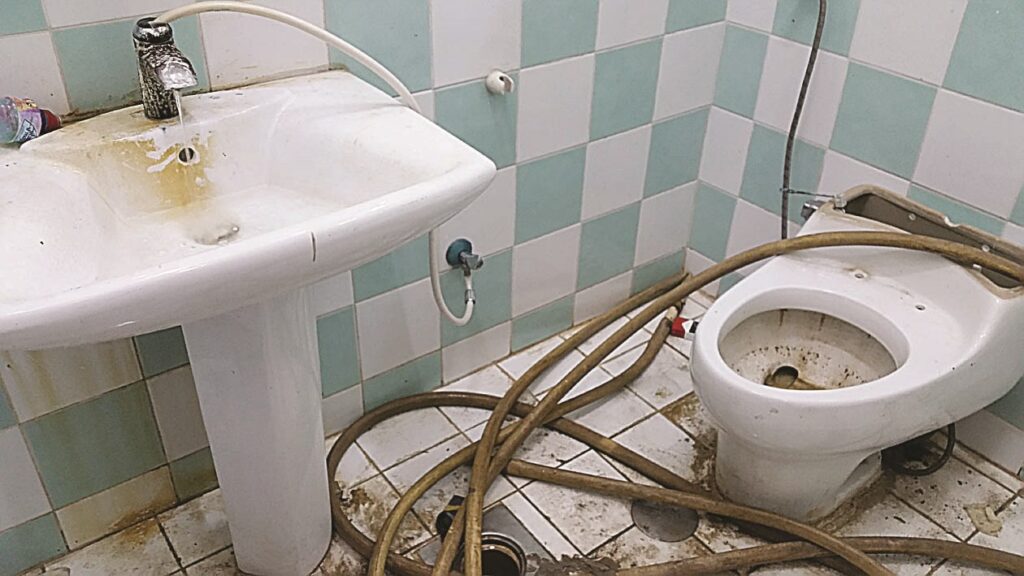01/08/2023
01/08/2023
Municipality dept completes study on ‘development’ of public toilets
KUWAIT CITY, Aug 1: The Project Development Department of Kuwait Municipality has completed a study on the development and operation of public toilets, reports Aljarida daily. It stated that 90 percent of the toilets are abandoned and closed for maintenance. Access to them is difficult and considered inappropriate.

They also do not conform to the regulations and requirements related to people with special needs. The municipality had called for a review of the number of toilets in Kuwait and their locations, and after a field inspection, it was discovered that there are a total of 41 toilets. It called for placing a number on them in Kuwait City as part of the practice of beautifying Kuwait City.
It also recommended implementing a smart system in the public toilets and applying sustainability systems. The study stressed the preservation of the four sites in the vicinity of Mubarakiya area, which is currently under operation, until the completion of studies related to the beautification of Kuwait City. The municipality insisted on the removal of all toilets located in Al-Rai and Shuwaikh Industrial areas; with four in Al-Rai and two in Shuwaikh Industrial, due to the presence of alternative toilets available within the area. It also recommended demolition of all public toilets located on Salmi and Abdali roads in Jahra Governorate.
Provision
It affirmed the provision of public toilets on Salmi and Abdali roads through the development of fuel stations and the completion of the development of the highway rest stops project. It obligated the developers of the above two projects to implement a sufficient number of toilets to serve the roads. Regarding the toilets located in residential areas, the municipality recommended coordinating with the Ministry of Social Affairs for the transfer of the allocation of sites and the affiliation of public toilets to cooperative societies.
It also recommended the cancellation of the allocation decisions and the removal of toilets located in residential areas in the event that their transfer to cooperative societies is not approved. It stressed the need to work on obliging the application of the Gulf Building Code and the building law and regulations, especially the provisions related to obligating all buildings and facilities in all areas with all their commercial, investment, craft and other uses, to provide toilets that serve their users and visitors, given that the process of operating toilets is linked to both operation and maintenance work. It also recommended activating the role of the construction department by issuing tenders or auctions related to the operation and maintenance of public toilets located in public beaches belonging to the municipality and located in Kuwait City.
In the same context, the municipality approved licensing the Public Utilities Management Company to provide self-service smart toilets for a nominal fee in the company’s multiple and ground car parks. The Acting Director General of Kuwait Municipality Eng. Saud Al-Dabbous stated that the municipality approved the initiative presented, as it is in line with the Kuwait Municipality’s vision regarding the operation of public toilets. He stressed that the Projects Development Department in the Projects Sector has completed preparing the necessary study for the possibility of operating toilets in the governorates as an investment option.
Application
Eng. Al-Dabbous indicated that the approval of the application is conditional on obtaining the prior approval of the Ministry of Finance to collect a small fee in return for using the toilets within the car parks managed by the public utility company. He revealed that symbolic entry fees will be set for smart bathrooms in order to facilitate the public use of toilets; however, people with special needs and the elderly will be exempted from paying entry fees to use the toilets.
Eng. Al-Dabbous stressed the need to develop a mechanism that facilitates their entry to bathrooms, and to provide a system that facilitates the payment process for users of smart toilets so that the system allows diversity and ease of payment methods. He highlighted the provision of an integrated emergency program for smart toilets so that any problem facing the operation of smart toilets is addressed. Eng. Al-Dabbous implied the need to set timings for operating and closing them so that they are not exploited in an uncivilized manner, provide general hygiene for them either by self-cleaning or allocating specialized labor, provide security guards to ensure the safety of users and facilities, and avoid any problem related to the users of smart toilets.


